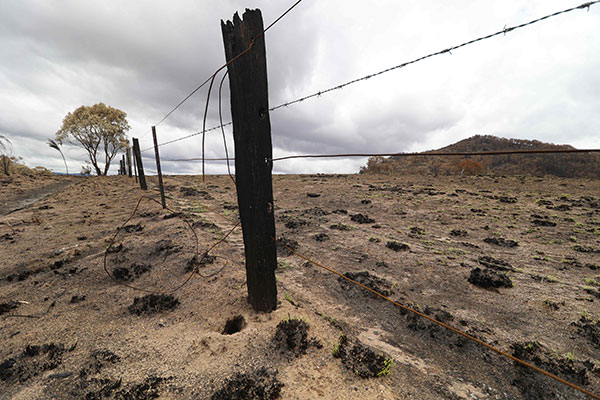Psychological Flexibility
A key to building resilience and promoting mental wellness.
A key to building resilience and promoting mental wellness.
By Darren Devlin
Rural Aid Counsellor and Community Representative
Psychological flexibility allows people to adjust their behaviours and routines to respond effectively to the demands of a situation, while being consistent to their core beliefs.
For example: a farmer’s fencing runs in a particular pattern that was established by his father before him. However, the fence has come down and needs to be replaced. The farmer could now get upset and angry because he has lost his fence and then replace it the same old way as before (demonstrating psychological inflexibility). Or, he could explore how he may improve the pasture or field and make the fence work with the land better, and be a greater benefit to his production; seeing the fence coming down as an opportunity rather than a loss (demonstrating adaptability and psychological flexibility).
This is a very practical example and one that I hear farmers expressing quite often. In one case in particular, a farmer had lost his fencing on a certain part of his property a couple of times over the past few years. This last time when the property flooded, he adapted and instead of replacing the old fence with the same as what he lost, he acknowledged that this part of his property floods regularly and the resulting flooding causes debris to build up on the fence and knock it down. This time he decided that instead of putting the same old fence up, he would explore different options. That’s when he discovered a flood proof fence. When this fence is hit by the debris of a flood, it releases itself from thin wire ties and lays flat allowing debris to flow past. Once the flood has passed, instead of replacing the whole fence, he just stands the existing fence back up and reties it in place. This saves time and labour as well as the financial burden of rebuilding a whole section of fence.
How does being psychologically flexible help our mental health and well-being?
- Being psychologically flexible allows people to be open to new experiences, which allows us to learn new things.
- It helps people adapt to changing circumstances, which can help people function more effectively in their environments.
- People can let go of negative or unhelpful thinking and behaviour patterns by accepting that things happen and viewing them as learning opportunities, rather than being stuck in rigid routines and feeling like a victim.
- It allows people to respond to situations in adaptive ways rather than feeling stuck or like these things are just going to keep happening, leaving the person feeling hopeless in their situation.
Being psychologically flexible not only helps people respond better to challenges, but it also helps them cope with setbacks when they do happen. Flexibility can improve how people manage stress and ultimately enhance overall well-being.
How do we build psychological flexibility?
- Practice mindfulness. Mindfulness put simply is being present in the moment, engaged in what you are doing and pausing or being aware of your situation and environment. This is the first step to cultivating psychological flexibility. Without being present of your surroundings and situation you cannot engage in adapting to change. Instead, you may find yourself just bouncing from one problem to the next without ever actually adapting to your environment.
- Acknowledge your thoughts, acknowledge that discomfort and upset are normal parts of life. Thoughts are only temporary, we can choose to sit in them or we can acknowledge them, learn from what they are trying to tell us and then adapt and move on.
- Challenge your thoughts. Instead of thinking of them as negative, try to remind yourself how thoughts, feelings and behaviours are linked. Instead of focussing on how negative a particular thought is, try to change that perspective and think about how helpful that thought is. How is that thought making me feel? Do I want to feel this way? Is thinking this thought going to be helpful to what I need or want to do?
- Embrace new things. Take opportunities to change the way you experience something. Talk to friends for different perspectives. Consult others that have done something similar or have had a different outcome in a similar situation. The more we expose ourselves to alternatives, the more opportunities we have to learn and adapt to changing situations.
- Develop a growth mindset. Try to see the challenges in your life as opportunities to grow and develop. By viewing difficulties as opportunities to learn, we are never really stuck in a negative situation, we are simply learning a new way of doing something or experiencing that situation.
Maintaining psychological flexibility is an ongoing process, it requires continual practice and effort. However, incorporating some of the above strategies into your daily life can help you develop greater psychological flexibility. Let’s face it, things are going to continue to happen, and we are going to keep getting faced with difficult times. Things are always changing, therefore maintaining psychological flexibility can help reduce the impact on our well-being and allow us to adapt more effectively to the ever-changing demands of life.
If you would like to talk to someone to help develop or cultivate your psychological flexibility, reach out to one of our skilled counsellors.
Rural Aid Counselling Intake Line – 1300 175 594
Or send us an email – mhwb@ruralaid.org.au

